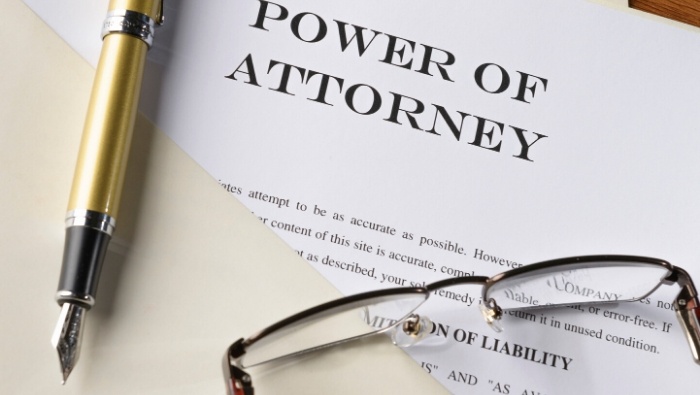What Retirees Need to Know About Powers of Attorney
by Gary Foreman

A power of attorney is a valuable tool to help you care for a loved one’s financial affairs. Used correctly it can save you both time and money.
It could happen to you or to your elderly parent. You’ve had an accident or a medical problem. For a few hours, a few days, maybe longer, you’re unable to take care of your financial affairs. Checks can’t be written. Decisions can’t be made. There’s an answer. It’s a document called a “power of attorney.” Let’s examine what retirees need to know about powers of attorney.
To help us understand how powers of attorney work and what they can do, we asked Kimberly J. Howard, CFP of KJH Financial Services to help. Ms. Howard is a fee only financial planner. She answered a number of our questions about these important legal documents.
Q: In layman’s terms, what is a power of attorney?
Ms. Howard: Giving someone the power to act on your behalf.
Q: What’s the difference between a limited power and a general power of attorney?
Ms. Howard: Limited Power of Attorney is used when you want someone to act on your behalf in a certain circumstance. General Power of Attorney is the most powerful because you are giving someone else a broad range of powers.
Subscribe to After 50 Finances, our weekly newsletter dedicated to helping you plan for a comfortable retirement even if haven't saved enough. Subscribers get The After 50 Finances Pre-Retirement Checklist for FREE!
You deserve a comfortable retirement.
Subscribe to After 50 Finances, our weekly newsletter dedicated to people 50 years and older.
Each week we feature financial topics and other issues important to the 50+ crowd that can help you plan for a comfortable retirement even if you haven't saved enough.
Subscribers get The After 50 Finances Pre-Retirement Checklist for FREE!
We respect your privacy. Unsubscribe at any time.
Q: Is there a time limit for a power of attorney?
Ms. Howard: If you want the power of attorney to be for a limited time frame, then it must be spelled out in the document.
Q: Can a power of attorney be used after the granter dies?
Ms. Howard: The power of attorney dies, or is no longer valid, with the granter.
Q: Are there certain things that cannot be done using a power of attorney?
Ms. Howard: A power of attorney can be used for all legal and financial matters.
Need to Set Up a Power of Attorney?
If you cannot afford a lawyer, you can find Power of Attorney forms at Nolo.com.
Q: Must you have a lawyer draw up the paper? Or can a layman write his or her own?
Ms. Howard: Anyone can draw up a power of attorney, but doing so could cause more harm than good.
There you have it. A power of attorney is a valuable tool to help you care for a loved one’s financial affairs. Used correctly it can save you both time and money.
Reviewed May 2020
About the Author
Gary Foreman is the former owner and editor of the After50Finances.com website and newsletter. He's been featured in MSN Money, Yahoo Finance, Fox Business, The Nightly Business Report, US News Money, Credit.com and CreditCards.com.
Sign me up for a comfortable retirement!
Every Thursday we’ll send you articles and tips that will help you plan for and enjoy a comfortable retirement. Subscribers get a free copy of the After 50 Finances Pre-Retirement Checklist.
Sign me up for a comfortable retirement!
Every Thursday we’ll send you articles and tips that will help you plan for and enjoy a comfortable retirement. Subscribers get a free copy of the After 50 Finances Pre-Retirement Checklist.
Popular Articles
- Comparing Retirement Housing Options
- How We Retired With Almost No Savings
- How Retirees Can Live on a Tight Budget
- 9 Things You Need to Do Before You Retire
- What You Need to Know About Long Term Care Insurance Before You Retire
- You Didn’t Save Enough for Retirement and You’re 55+
- Could Debt Derail Your Retirement? A Checklist
- Your Emergency Fund In Retirement: A Comprehensive Guide
- Managing Your 401k In Your 50s


